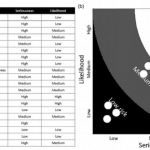Taking Inspiration from Innovation: Key Insights from Eight Entrepreneurs Making an Impact in Emerging Markets
It’s easy to feel overwhelmed by all the critical challenges we face globally. For me, one source of hope and inspiration are the entrepreneurs we support at Miller Center for Social Entrepreneurship, whose innovative solutions to these challenges demonstrate that business really can be a force for social good.
But for social entrepreneurs to flourish, they must learn from each other. To that end, we asked entrepreneurs from Miller Center’s Clean Water and Climate-Smart Agriculture in-residence program to share some thoughts on their innovations, the challenges they’ve overcome and the lessons they’ve learned. The insights these eight leaders shared can aid fellow social entrepreneurs in their journeys toward building sustainable businesses that help end global poverty. (You may have seen them at last fall’s SOCAP conference, where they took the stage to present their social enterprises during a standing-room-only pitch session.)
Whether working to increase smallholder farmers’ yields or profits, improve farmers’ distribution and market access, or promote solutions to drinking water or sanitation, these entrepreneurs expressed a few common themes, which I’ll share below.
Pay Close Attention to Customers’ Needs
Rather than relying on generic, theoretical or top-down solutions — or assuming that a workable solution in one situation can be generalized to another set of circumstances — successful entrepreneurs begin by thoroughly understanding the needs, obstacles, environment, influences and dynamics of the people or communities they intend to serve.
For example, Cycle Connect focuses on helping isolated farmers acquire the assets they need to increase yields and reach buyers for their products. “We meet our clients where they are: in deep rural areas disconnected from roads, markets and connectivity,” said CEO Emmy Okkema. “By being close to our clients in the last mile, we are able to understand their farming cycles, social structures and financial capacity.” Based on this familiarity with its customers’ needs, Cycle Connect has provided more than 12,000 farmers with productive assets they need — including oxen, plows and transport such as bicycles and motorcycles — which the enterprise also plays a key role in distributing to the farmers. As Okkema describes it, her company is the only successful provider of these essential assets, “due to our farmer-centric loan terms, community-based oxen sourcing and tailor-made business training that includes renting out oxen in the farmers’ villages.”
Adapt to New Challenges
Entrepreneurs must often deal with unexpected challenges — particularly when working in emerging markets. Sometimes, they need to move away from what originally seemed like a viable path, in response to changing conditions or new pressures.
That’s what The Harvest Fund — which leverages technology, finance and training to support marginalized women farmers in Africa — did when it faced a sudden obstacle with one particular crop. “After we pivoted toward tomato production, the markets experienced an extreme drop in fresh tomato prices,” said Michelle Kurian, the enterprise’s executive director. “We then brainstormed ways to easily process fresh tomatoes to tomato paste at farm level.” Zambia has only two tomato products companies, and they generally import their tomato paste, so The Harvest Fund realized it could fill a supply chain gap with its farmers’ locally produced paste.
Gravity Water, which turns rain into safe drinking water for schools in developing countries around the world, encountered a challenge of a different nature. “When Gravity Water first launched in Nepal, the country was still rebuilding after two devastating earthquakes in 2015,” said Danny Wright, the company’s founder and executive director. The earthquakes’ destruction complicated Gravity Water’s mission due to post-quake water pollution, limited electricity to run water filtration systems, and lack of money and knowledge to fix the ones already installed. The enterprise responded by developing an innovative, 100% electricity-free solution combining rainwater harvesting, elevated storage and gravity-fed filtration to meet the needs of its customers.
Natural disasters have also presented challenges to Miyonga Fresh Greens, which works with growers across East Africa to export fresh vegetables and fruits to markets in Europe. The effects of climate change have led to more severe weather, and in some Kenyan counties where Miyonga works, heavy rains were destroying crops, causing a reduction in yield, diminishing the product quality of harvested produce and creating unpredictable supply for the company to distribute. To address this challenge, “in 2020 Miyonga introduced innovative agro-processing technology, creating dried and powdered fruit products to expand growers’ value beyond fresh horticultural products for export and local consumption,” said Grace Njoroge, operations manager.
In other cases, a lack of local resources can complicate a company’s original business plan. For Sauti East Africa, their initial concept of creating a platform to connect low-technology farmers with market information faltered when they discovered that data sources profiling buyers and sellers in East Africa’s marketplaces simply weren’t available. “We were falling short of addressing one of the greatest needs for farmers in East Africa: finding buyers for their products,” said Lance Hadley, the company’s CEO and co-founder. Sauti responded by establishing its own directory of buyers and sellers, enabling them to connect farmers to this information directly.
Solving funding challenges is another area that requires creative solutions. For example, getting funding to help vulnerable communities gain access to clean water is easier than finding funders willing to pay for the ongoing maintenance of the handpumps, taps and other systems necessary to sustain that water access. SaniTap is addressing this gap through an innovative financing mechanism to rehabilitate — and maintain for 15 years — water sources serving hundreds of thousands of people in Madagascar. “SaniTap will use the fast-emerging carbon offset market to finance the work,” said Andrew Tanswell, managing director. “Carbon credits will be generated from the restored provision of safe drinking water, and will then create revenue through their sale to large corporations that seek to go carbon-neutral and net-zero.”
But perhaps the most counterintuitive example of a business challenge these entrepreneurs shared was from AMAATI, which had to think creatively when its efforts were actually too successful. The Ghanaian social enterprise, which is working in Northern Ghana to revive the use of fonio, an ancient, nutrition-dense cereal grain, initially targeted only women smallholder farmers. “Women’s land access was the key problem we wanted to solve,” said CEO Salma Abdulai. “However, when men realized that women using marginal lands for fonio started growing other crops after the land was regenerated, they insisted on getting the land back.” AMAATI responded by involving the men in the cultivation of fonio, too. “Once they started benefiting from their relationship with AMAATI, they realized how important it was for their wives to continue using the land,” Abdulai said.
Forge Deeper Connections with Customers, Funders and Partners
Many of these social entrepreneurs acknowledged how critical it is to establish and extend connections with customers, partners, funders and other parties.
For example Warc Africa, which designs and sells regenerative farming inputs as a service, found success when they “pivoted to a partnership approach with suppliers and downstream buyers to shift to fairer pricing and cash-and-carry — resulting in more inputs delivered to more farmers at prices that helped farmers save $100 per acre on maize input bundles, and [allowed] Warc to operate with no credit risk,” said CEO Christopher Zaw.
In Uganda, Cycle Connect leveraged its relationship with customers to help farming families overcome their physical distance to markets for their products. “The past year we set up six smaller branches in last-mile trading centers that are 50 miles from nearby towns,” said CEO Emmy Okkema. “This allowed us to build strong relationships with farming communities and see more clients faster. With this strategy we saw a 70% increase in loans, and we now have a 95% repayment rate.”
Grace Njoroge at Miyonga also believes in the power of strong business relationships. “One aspect that has greatly contributed to Miyonga’s growth is forming strategic partnerships,” she said. “Over the years we have partnered not only with the farmers we work with, but also with institutions and development agencies. The partnerships have enabled Miyonga to not only gain funding for our projects, but also increase our resources, access a wealth of knowledge, increase revenue and reach a wider market — thus enabling us to bridge the gap between opportunity and expertise while improving the livelihoods of smallholder farmers.”
Conclusion
Listening. Connecting. Remaining flexible and agile. Working to understand the specific needs of a particular community, market or location. Then finding innovative approaches and solutions that meet those needs.
In all our conversations with entrepreneurs that attend Miller Center programs — and others we meet across the globe — these are the foundational elements of building a successful business. We hear them time and time again, they’re simple and straightforward. But that doesn’t make them easy.
Doing business is challenging, particularly in emerging markets. Collectively, we owe it to these dedicated, creative and brave innovators to do whatever we can to support their efforts — whether helping them hone and expand their business skills, providing much-needed funding, or working directly to advance their impact.
These entrepreneurs are our future. And their continued accomplishments give all of us hope for that future.
NOTE: This article was in NextBillion’s Most Influential Articles of 2023 contest.
Brigit Helms is executive director of Miller Center for Social Entrepreneurship.
Photo credit: AMAATI
- Categories
- Agriculture, Social Enterprise, WASH



